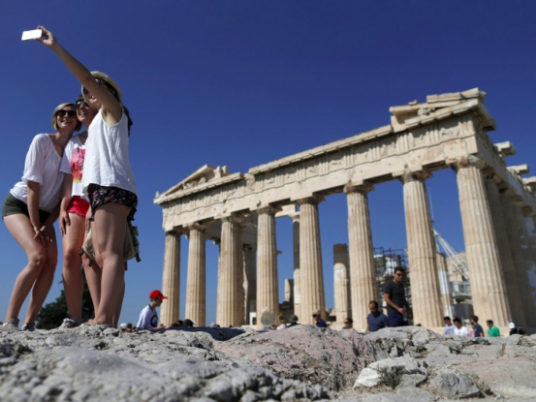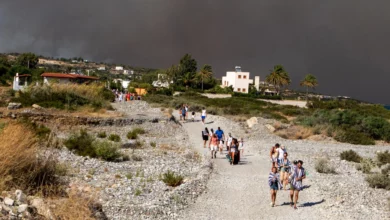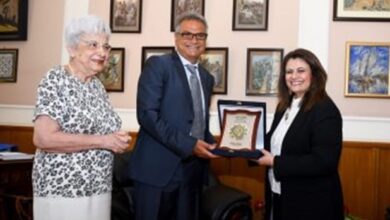
At London’s Heathrow Airport, a traveller to Greece is offered a deal by Aegean Airlines: the flight is booked solid, take a different flight and get €400 (RM1,702) and a free round-trip ticket to anywhere in Europe.
Some hours later in Athens, a long queue moves slowly forward to passport control, while smiling but harried officials shout out “Santorini”, “Mytilene” and the names of other sun-drenched Greek destinations as they try to herd tourists quickly towards connecting flights.
Greece, despite all its economic and political strife, is heaving with foreign tourists.
“On TV, they said we can come, there was no problem,” said Thibault Larhant, a tourist from Normandy, in France, who was resting at an open air cafe in Athens’ Syntagma Square, cooled by a fan spraying water vapour.
“We came to go to the islands, for the countryside,” he said, adding that he and his companion had had no problems.
Nearby, another French tourist sat on the “Athens Happy Train”, a road vehicle with carriages that swings visitors around the main sights in Greece’s capital, such as the Acropolis.
“My friend loves history and culture,” said Christelle Fourdinier, from Perpignon, indicating her companion.
Greece’s ancient sites and holiday playground islands have been little changed — from a tourist standpoint — by an economic crisis that led to the closure of banks and the country coming within a hair’s-breadth of leaving the euro zone.
It is just as well, given that tourism accounts for around a fifth of Greek economic output — perhaps more now that the economy is shrinking again.
“Tourism is … our heavy industry, it is the main economic source of income today and also the main source of jobs for many Greeks,” Minister of Tourism Elena Kountoura told parliament this week.
“Today, it offers 750,000 direct jobs, numbers that rise to 1.5 million jobs including indirect tourism-related jobs.”
Giving support
Hard numbers for tourist arrivals are difficult to come by because it is only just high season, but there are signs.
Aegean Airlines, Greece’s largest carrier, says passenger traffic was up 19 per cent in July compared with the same month last year.
The economy ministry, meanwhile, estimates that arrivals this year will exceed last year’s record of nearly 21 million. Some estimates put it at around 25 million.
“If the data we have so far is accurate and continues to show this positive trend, Greek tourism will have a positive season for 2015 in relation to previous years,” Kountoura said.
From queues for ferries at Piraeus port to crowds milling at the changing of the pom-pommed, skirted guard at the Greek parliament in Athens, anecdotal evidence would also appear to suggest boom time.
This would be a much-needed boost for the economy, albeit one offset by an expected slump in domestic tourism as cash-strapped Greeks stay at home.
Some places less popular with visitors abroad are having a tough time of it. But there is little sign of hesitancy among foreigners, some of whom also benefit from a weaker euro.
The foreign visitors are not directly affected by Greece’s debt crisis, the poverty provoked by austerity, a jobless rate of roughly 26 per cent and the capital controls imposed on banks that limit Greeks to €60 of cash a day.
Some, though, are aware of the crisis and say they are happy their visiting is helping out.
Standing next to the 11th century Orthodox church of Kapnikarea, in Athens’s Monastiraki district, Claire Murray from Lancashire, England, said she and her husband were coming to Greece twice on holiday this year, in part to give support.
“We like it. It is a lovely place,” she said. “(We thought) why not spend our money here. We love the people.”




